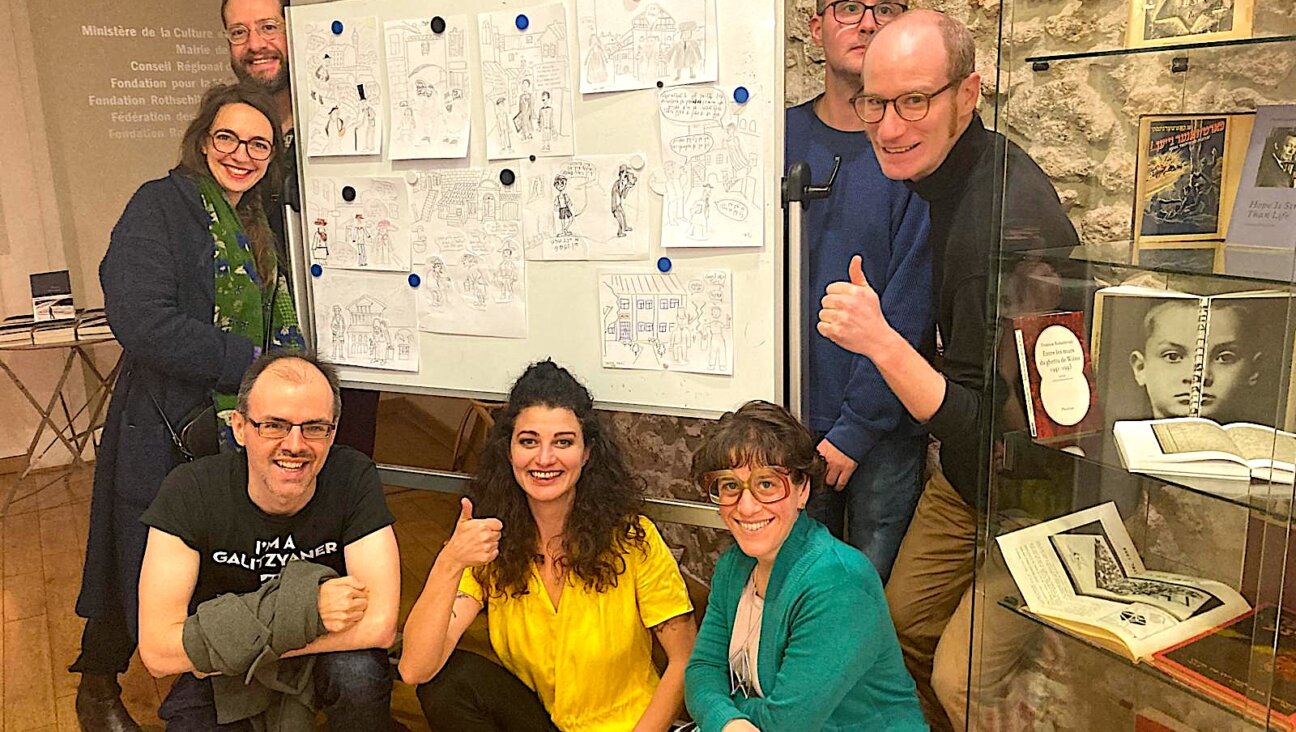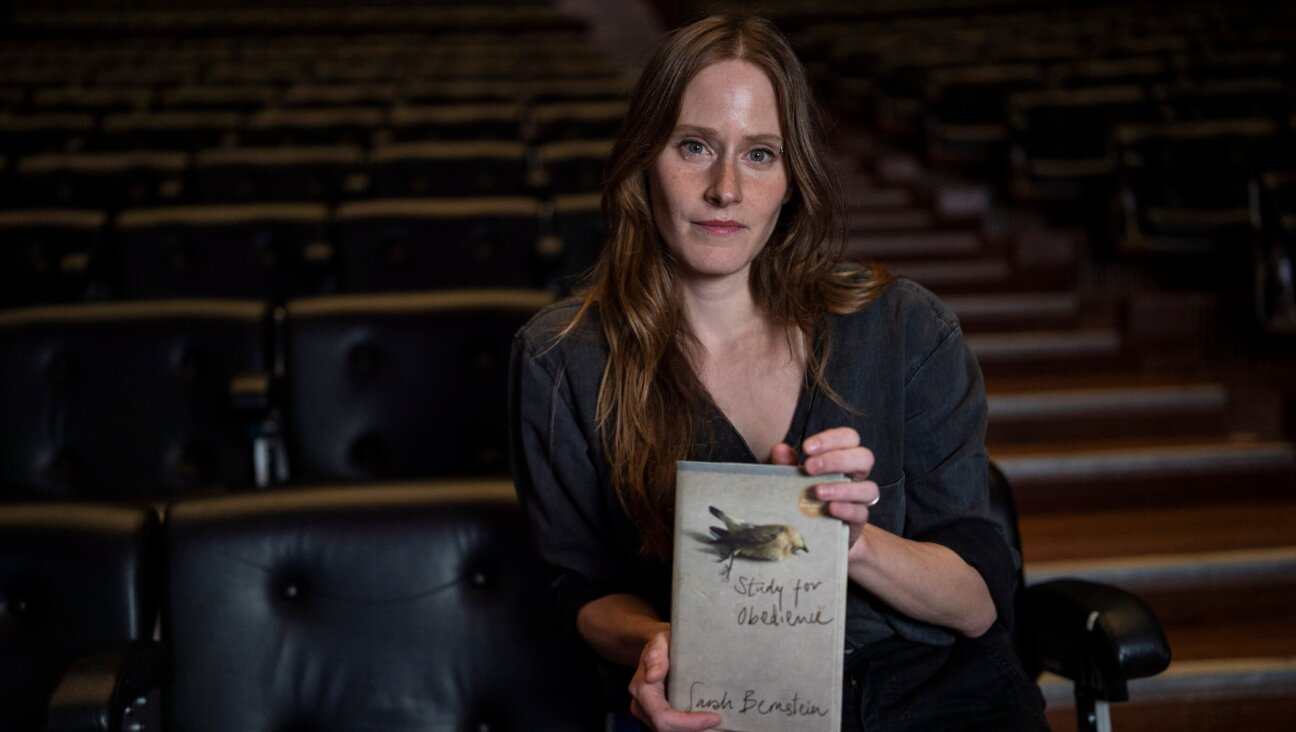Groups Question Own Inaction on African Killings
With the commemoration last week of the 10th anniversary of the 1994 genocide in Rwanda, amid growing warnings of new atrocities in Sudan, human rights activists complain that the organized Jewish community has failed to act on its implied commitment to see that such tragedies “never again” be allowed to occur.
Jewish organizations, with a handful of exceptions, have remained largely mute as government-sponsored militias in Sudan have routed black Muslims from the western province of Darfur over the last 14 months, in what United Nations observers have called a campaign of “ethnic cleansing.”
The conflict in Darfur persists at the same time that attention is being drawn to the failure of the international community to stop the Rwandan genocide, which began 10 years ago this month and left 800,000 dead in less than 100 days. In the discussions surrounding that anniversary, the Jewish community’s lack of protest to the killings in Rwanda has come under public scrutiny for the first time.
“We, who say that the lessons of the Holocaust should never be forgotten, failed to act as we could have,” said Rabbi David Saperstein, director of the Washington-based Religious Action Center of Reform Judaism.
Jewish organizations have mounted widely praised campaigns for human rights in the recent past, most notably a coordinated push for intervention in Bosnia, where the Serbian military was decimating the Muslim and Croat populations in the early 1990s. Jewish activists at the time frequently cited the silence of the world community in the face of Nazi atrocities during World War II, which they vowed would not be repeated.
“The Jewish community’s voice has a special moral resonance when it comes to issues of genocide,” said Kenneth Roth, executive director of Human Rights Watch. “It is a voice that we would like to enlist wherever large-scale murder takes place.”
Roth said, however, “it has been an inconsistent alliance.”
The Sudan crisis is widely described as the world’s most pressing right now. In the past month, reports of atrocities there have been issued by leading humanitarian agencies, ranging from Amnesty International and the United Nations High Commissioner on Refugees to the U.S. Agency for International Development. Experts say nearly 750,000 black Muslims have been driven from their homes in the desert province of Darfur over the past year by aerial bombing campaigns in concert with raids by government-sponsored Arab militias.
The campaign is not directly related to a decades-long Sudanese civil war pitting Arab Muslims in the north against Christian and animist blacks in the south.
Government forces agreed to a cease-fire in Darfur April 8, but observers have not reported any halt in hostilities. USAID has predicted that 100,000 civilians may die in the coming months.
The situation in Darfur has gone mostly unnoticed for the past year, but commemoration of the Rwanda genocide this month put Africa’s woes back on the Western agenda. In the past week, President Bush and U.N. Secretary-General Kofi Annan both criticized the Sudanese government publicly and called for immediate humanitarian aid to Darfur.
The Jewish institutional community, rather than leading the push for international acknowledgement of the “ethnic cleansing” — as it did in the case of Bosnia — has itself been prodded to make its first public mentions of the Darfur crisis in the past weeks. The executive director of the American Jewish Committee, David Harris, briefly mentioned the need for action in Darfur during his weekly radio address on April 12, and a “genocide warning” was issued on April 7 by the Committee on Conscience, a body formed to lead the genocide-prevention efforts of the U.S. Holocaust Memorial Museum in Washington, D.C.
These remarks don’t represent the first Jewish institutional involvement in Sudan. In 2002, Jewish organizations — notably the Reform Action Center — were instrumental in pushing the Bush administration to negotiate a cease-fire in the 19-year Sudanese civil war.
Concerning Darfur, however, most human rights observers interviewed by the Forward agreed with Smith College professor Eric Reeves, a leading proponent of intervention in Darfur, who told the Forward that “given the clear evidence that this is genocide — I don’t see a response to it by constituents from the Jewish community.”
Expectations of a Jewish communal response to Sudan today, and Rwanda 10 years ago, stem in large part from the successful campaign on behalf of Bosnian Muslims and Croats in the early 1990s. Agitation by Jewish organizations is widely credited with influencing the decision of the Clinton administration to approve NATO bombing of Serbian forces in 1995.
“In Bosnia and Kosovo, the American Jewish community was the single most important voice for protection and bringing an end to ethnic cleansing,” said Holly Burkhalter, who was the advocacy director at Human Rights Watch during the 1990s.
The resources devoted to Bosnia in 1994 have been cited by communal leaders as a prime reason that the Jewish community was unable to turn more attention to Rwanda.
Looking back to 1994, Felice Gaer, director of the Jacob Blaustein Institute for the Advancement of Human Rights at the American Jewish Committee, said: “What I see from that time is a great deal of activism with regards to Bosnia. On Rwanda I don’t see any formal public statements or meetings.”
That silence was not unusual. Most religious and ecumenical groups, like most of the international community, stood silent while the Hutu-led Rwandan government carried out its coordinated massacre of ethnic Tutsi Rwandans.
But even with the general silence, Will Recant — an executive at the American Jewish Joint Distribution Committee, which led an $800,000 relief effort to Rwanda after the killings ended — said he remembers that during the genocide he was “a little surprised that there wasn’t more of a consciousness being raised from the Jewish world.”
Explanations for the differing responses to Bosnia and Rwanda are manifold, said Samantha Power, whose recent book “‘A Problem From Hell’: America and the Age of Genocide” chronicles U.S. responses to genocide in the 20th century. Activism on behalf of Rwanda, Power said, was made difficult by the speed of the killings there, coupled with aftershocks from the bungled American mission to Somalia a year before. Moreover, media depiction of the Rwandan conflict as “age-old tribal warfare” made intervention seem hopeless.
But, Power said, nothing had a greater impact, at least on the Jewish community’s involvment in Bosnia, than the stark images from Serbian-run concentration camps. “There was a really strong sense of identification with people who looked like those from the Holocaust,” Powers said. “That is what moved Jewish groups — not immediately, but after a few months.” Such identification has gone lacking in Rwanda and Sudan, she implied.
Gaer, like many in the human rights community, is now preparing concrete policy proposals for Darfur that will give the community a position around which to mobilize.
“So far the Jewish community has not been ahead of the rest of the pack on Darfur,” Gaer said. “But once aroused, don’t underestimate the capacity of this community to mobilize action.”
A message from our CEO & publisher Rachel Fishman Feddersen

I hope you appreciated this article. Before you go, I’d like to ask you to please support the Forward’s award-winning, nonprofit journalism during this critical time.
We’ve set a goal to raise $260,000 by December 31. That’s an ambitious goal, but one that will give us the resources we need to invest in the high quality news, opinion, analysis and cultural coverage that isn’t available anywhere else.
If you feel inspired to make an impact, now is the time to give something back. Join us as a member at your most generous level.
— Rachel Fishman Feddersen, Publisher and CEO






















